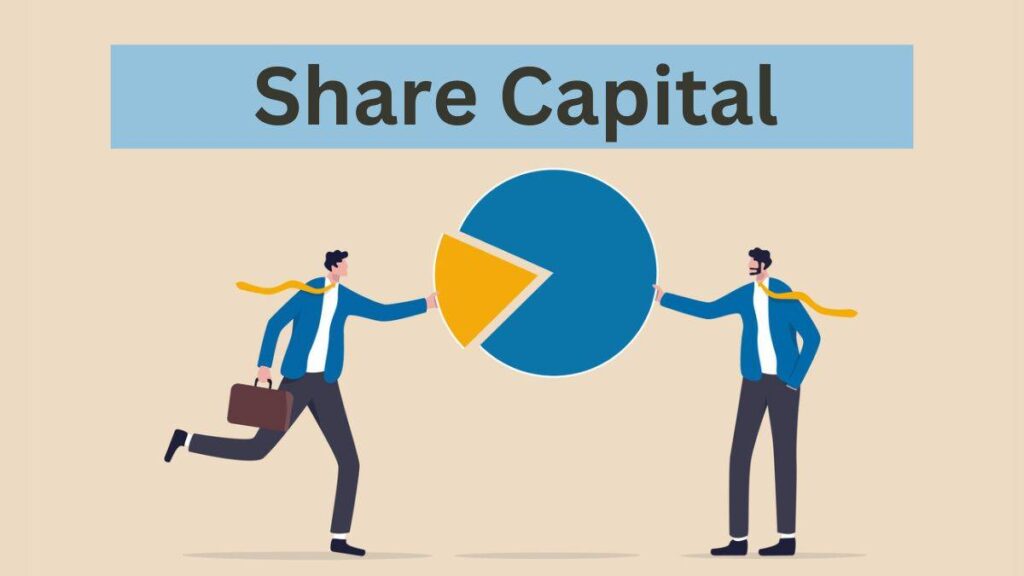Paid-up capital is the amount of money a company has received from shareholders in exchange for shares of stock. Paid-up capital is created when a company sells its shares on the primary market directly to investors, usually through an initial public offering (IPO). When shares are bought and sold among investors on the secondary market, no additional paid-up capital is created as proceeds in those transactions go to the selling shareholders, not the issuing company.

Paid up Share Capital
Paid up share capital is the part of total called up amount which is actually paid by the shareholder.It refers to the amount that has been received by the company through the issue of shares to the shareholders. Company cannot issue paid up capital more than the authorized capital of the company. However, a company may increase its paid-up capital, then it can do so by altering capital clause of memorandum.
Benefits of increasing Paid up Capital of the Company
- Growth :- By increasing the capital you can grow the business. If you have idea of growing business then you need to infuse a good amount of paid up capital into your business.
- Innovation :- More capital will result in tapping more ideas related to invention. Hence, by increasing the paid up capital, the company can become more innovative
- Competition:- By increasing capital we can easily give competition to the market as technology is changing very fast. Hence, to compete and to stay in market, more capital will be required.
- Changing environment :- With the change in environment, market is changing very fast. Hence, to give more satisfaction to consumer we have to make our business better and for that we have to need increase our paid up capital.
Which companies can increase its paid-up capital?
Both public limited company and private limited company are allowed to increase paid up capital. However, there are restrictions on private limited company that they can not issue shares to general public
How to increase Paid up Capital of Company?
- Private placement: Private placement is a method through which offering of securities can be made to not more than 200 persons in the aggregate in a financial year. This mainly include family ,friends etc. Excluding qualified institutional buyers and employees of the company. Private placements are exempt to issue prospectus but they are issued by offering an offer letter.
- Right issue of shares: It refers to an invitation to subscribe shares to the existing shareholders at discount rate .In this method when company wants to rise paid up capital company, it goes to existing shareholder of the company rather than public. By this company give chance to existing shareholder to get share at discount rate.
- Preferential basis: In this method company issue shares or other securities to selected group of persons .Value of offer per person shall not be less than Rs. 20000/- of face value. It must be authorized by Article of association of the company and approve by shareholder at Annual general meeting .
- Sweat equity shares: These shares are issued to directors or employees at discount or consideration other than cash for providing known how or making available rights in the nature of intellectual rights or value additions.
- Conversions of debentures into shares : Through this method, a company may convert its debentures into shares by passing a special resolution. Also, in this money invested cannot be refunded until liquidation.
- Issue of bonus shares: it is an offer to issue additional shares to the existing shareholders. It is also called scrip issue. It must be authorized by company articles of association.company can simply issue bonus share by its free reserves. For example , company will issue 1 share on every 5 shares hold by each shareholder of the company.
Procedure to increase Paid up share capital of the company
- Hold a Board Meeting and Pass board resolution at board meeting
- During board meeting, decide the way to increase capital
- Send notice to all member for calling general meeting and approve the same by passing members resolution.
- Submit relevant form to MCA.
- Within 60 days from application money allot shares to the shareholders.
- After allotment company shall issue share certificate within 2 months of allotment to all the shareholder of the company.
Paid-Up Capital vs. Authorized Capital
When a company wants to raise equity, it cannot simply sell off pieces of the company to the highest bidder. Businesses must request permission to issue public shares by filing an application with the agency responsible for the registration of companies in the country of incorporation. In the United States, companies wanting to “go public” must register with the Securities and Exchange Commission (SEC) before issuing an initial public offering (IPO).1
The maximum amount of capital a company is given permission to raise via the sale of stock is called its authorized capital. Typically, the amount of authorized capital a company applies for is much higher than its current need. This is done so that the company can easily sell additional shares down the road if the need for further equity arises. Since paid-up capital is only generated by the sale of shares, the amount of paid-up capital can never exceed the authorized capital.
FAQs
Importance of Paid-Up Capital
Paid-up capital represents money that is not borrowed. A company that is fully paid-up has sold all available shares and thus cannot increase its capital unless it borrows money by taking on debt. A company could, however, receive authorization to sell more shares.
A company’s paid-up capital figure represents the extent to which it depends on equity financing to fund its operations. This figure can be compared with the company’s level of debt to assess if it has a healthy balance of financing, given its operations, business model, and prevailing industry standards.